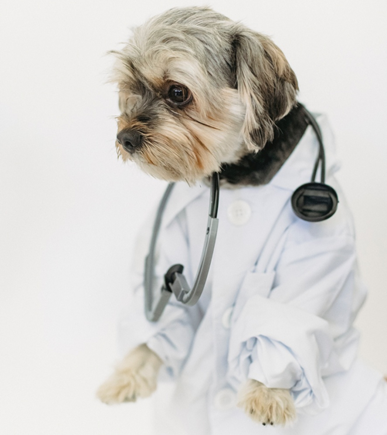Pet Healthcare:12 signs of illness in your Dog or Cat

Pet healthcare is a largely misunderstood concept amongst pet owners around the world. Pet parents can't be always be blamed for this, as they aren't often aware of their pet's illness or health requirements.
Pet healthcare issues can arise from a range of causes like the wrong diet, substandard pet food, poor hygiene, improper care routines, or climate suitability. Illnesses may be insignificant and short-lived or painful prolonged ailments like diabetes and cancer. We think a gap in pet owners' knowledge is what causes most pet healthcare issues and can be avoided.
This blog will help cat and dog owners understand the tell-tale signs of illnesses in their fur babies that might otherwise go unnoticed.
12 signs of illnesses in cats and dogs
Most signs of health issues in domestic cats and dogs are similar. The list below mentions some of the many red flags that pet owners usually ignore or do not understand fully:
Diarrhea or constipation
The best way to keep track of your pet's everyday health is to take a look at their poo. Healthy excrements look solid, are not too small or big, and don't take very long to finish. If your pet's excrement contains a lot of fluid or takes too long to come out, there's most likely a digestive issue. Cats and dogs have resilient bodies and immune systems, so this problem will usually fix itself. However, if the condition continues for more than 2 consecutive days, or occurs regularly over a long time, head to the vet without delay.
Vomiting or gagging
Cats and dogs usually take good care of their stomachs by throwing up any harmful or unsuitable food. If your pet vomits every time they eat something, chances are that there is either some problem with the food they are being fed or with their digestive system. Don't delay a vet visit if your pet vomits or gags regularly.
Sneezing and/or coughing
Usually, these are symptoms of cold and flu and shouldn't last long. However, treatment must be prompt in severe cases to avoid weakness and a decline in general health conditions, which invites new, more serious issues.
Loss of appetite
If your pets aren't interested in their meals, there is probably a health issue within, or they are mentally not at their best (yes, this is a thing).
Drinking too much water
Cats and dogs drink too much water when there are internal health issues that are not obvious otherwise.
Red or swollen gums
Potential infection or an allergy to something in a pet's diet can result in swollen or red gums. Seasonal allergies could also be a reason, among others.
Urine appearance
If your pet's urine is darker than usual, does not come out easily, or has a strong odour, there could be urinary tract issues.
Discharge from eyes and/or nose
Infections or allergies could be the reason behind watery eyes and nose.
Excessive scratching
Dogs and cats love a good scratch now and then. However, if they are scratching themselves too much, there is a dermatological issue. Parasites like ticks can infest cats and dogs when they play in the garden or interact with other infected animals. Allergies from certain objects and foods can also cause skin rashes. Get them treated before excessive scratching causes skin damage or bleeding.
Rapid gain or loss of weight
Weight gain or loss could indicate health problems like diabetes or cancer (especially in older pets). When not treated in time, these healthcare issues result in prolonged illnesses and unexpected deaths. Do not delay a vet visit if you notice rapid weight changes.
Lethargy
If your otherwise active and jumpy pet suddenly becomes lazy, take this as a red flag and head over to the vet for diagnosis. Multiple mild and severe health issues could be the reason behind your pet's laziness.
Body odour
If you regularly bathe your pet with the right products, their coat shouldn't smell bad. Cats and dogs develop unpleasant body odours when an underlying healthcare issue is present. Take them to the vet without bathing them so that the issue can be diagnosed properly.

Of course, going to the vet is the first and most important suggestion when pets show any of the signs mentioned above. However, pet parents do not realize that persistent healthcare issues are sometimes a result of bad caretaking.
If you aren't already, provide your pet with premium-quality pet food, vitamins, probiotics, and a clean living and sleeping space, and notice how their health drastically improves. To find the best quality pet products from top brands, trendy pet accessories, and more, check out our product range at BYMIT. Get in touch to learn more about our products.


0 Comments
There are no comments for this article. Be the first one to leave a message!